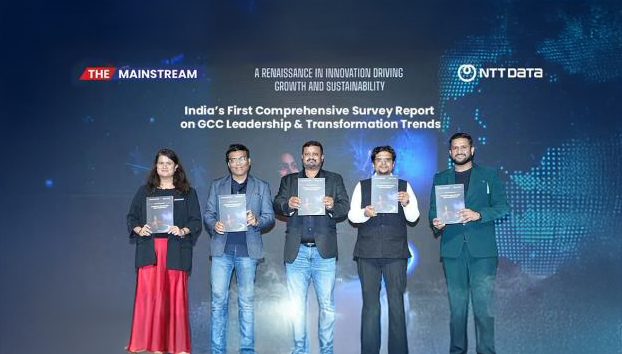Global Capability Centers (GCCs) in India are no longer just back-office extensions. They are fast becoming leadership and innovation powerhouses, with multinational corporations increasingly relocating senior executives and global function heads to India to lead critical R&D, product engineering, and digital transformation mandates.
GCCs Shift from Support to Strategy
Once seen as offshore delivery centers handling IT, finance, and procurement, GCCs have evolved into strategic hubs co-owning innovation and intellectual property. They now manage high-value functions such as AI model development, product design, automation, and data-driven business transformation — influencing enterprise-wide strategy rather than simply executing it.
“The key difference between traditional back offices and GCCs is ownership,” said Nitesh Bansal, Managing Director, R Systems. “As firms move R&D and engineering operations to India, leadership roles now come with greater accountability.”
India’s Rising Leadership Mandate
Leading global firms like Vanguard, Maersk, and Lowe’s have appointed vice presidents and global function heads to be permanently based in India.
- Vanguard, the U.S. mutual fund giant, recently inaugurated its new GCC in Hyderabad, led by Venkatesh Natarajan, who relocated after three decades in the U.S.
- Lowe’s India CTO Ankur Mittal and Maersk CTO Navneet Kapoor are both based in Bengaluru, highlighting India’s growing importance in global leadership networks.
Industry experts say this reflects a dual leadership model, where global business unit heads in India co-own product and strategy outcomes with headquarters — signaling a structural shift from delegation to shared accountability.
Data-Driven Growth Across Cities
According to GCC consultancy ANSR, leadership roles in major Indian cities have surged dramatically:
- Bengaluru saw a rise from 21 leadership positions in 2024 to 44 in 2025,
- Hyderabad jumped from 8 to 42 roles in the same period.
Other Indian cities like Pune, Chennai, and Gurugram are witnessing similar trends, solidifying India’s position as the epicenter of global GCC leadership.
Office Space and Economic Impact
GCCs now account for 38% of India’s total office space demand, according to CBRE India’s Anshuman Magazine, underscoring their critical role in driving the country’s commercial real estate market. With new GCCs being set up every two weeks and 60% of existing ones planning expansion, the sector’s growth trajectory shows no signs of slowing.
The Talent Advantage
“To manage this complexity, companies need leaders who can think globally and execute locally, and India’s talent pool is uniquely suited for that,” said Lalit Ahuja, Founder and CEO of ANSR.
India’s combination of technical expertise, cost efficiency, and leadership capability has made it the preferred global destination for scaling digital operations and innovation functions.
India’s combination of technical expertise, cost efficiency, and leadership capability has made it the preferred global destination for scaling digital operations and innovation functions.
The Bigger Picture
India currently hosts over 1,800 GCCs — nearly half of the world’s total. These centers are not only creating jobs but also reshaping corporate hierarchies, bringing the C-suite closer to India. Some leaders who rose through GCC ranks have already ascended to global executive roles, while continuing to operate from India — a sign of how deeply the country is now integrated into multinational decision-making frameworks.
Conclusion
India’s GCC evolution marks a turning point in the global enterprise landscape. No longer limited to cost optimization, GCCs are now leadership and innovation hubs, driving global mandates, designing future-ready products, and embedding AI into core business strategies. As global firms double down on digital transformation, India’s GCC ecosystem is set to define the next decade of enterprise growth.
Visit Our News section and follow us on LinkedIn and Twitter
Read more full news: Here







